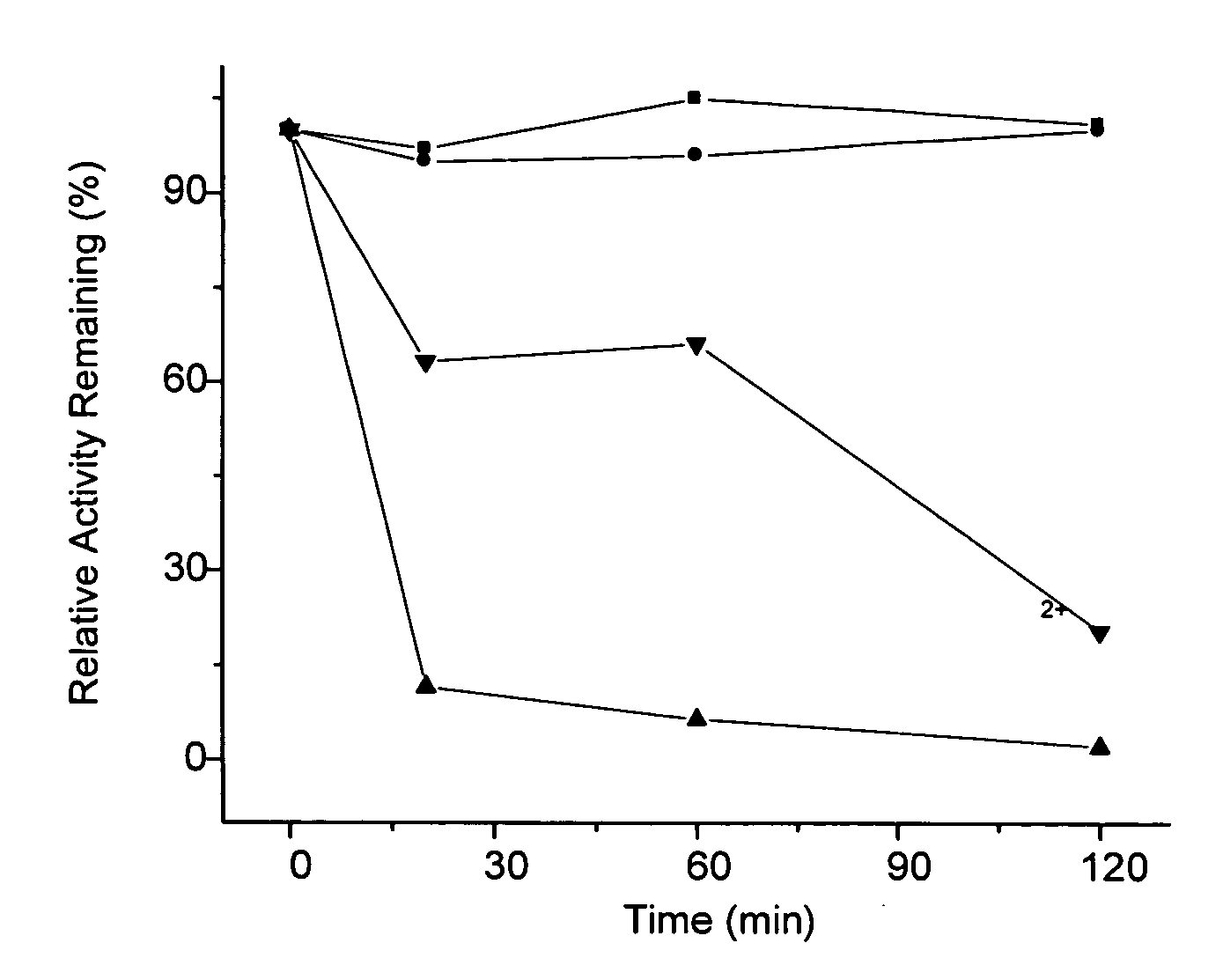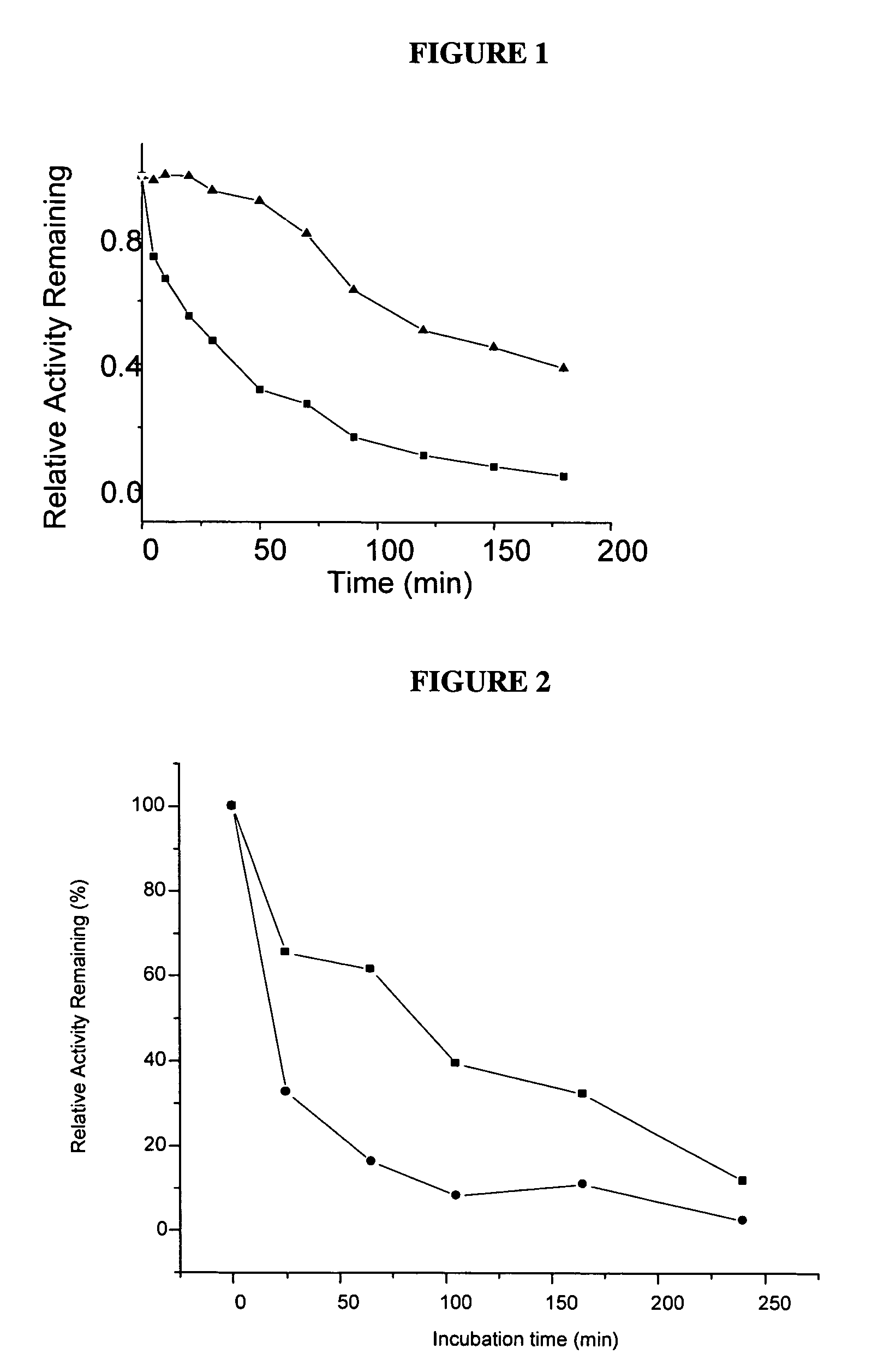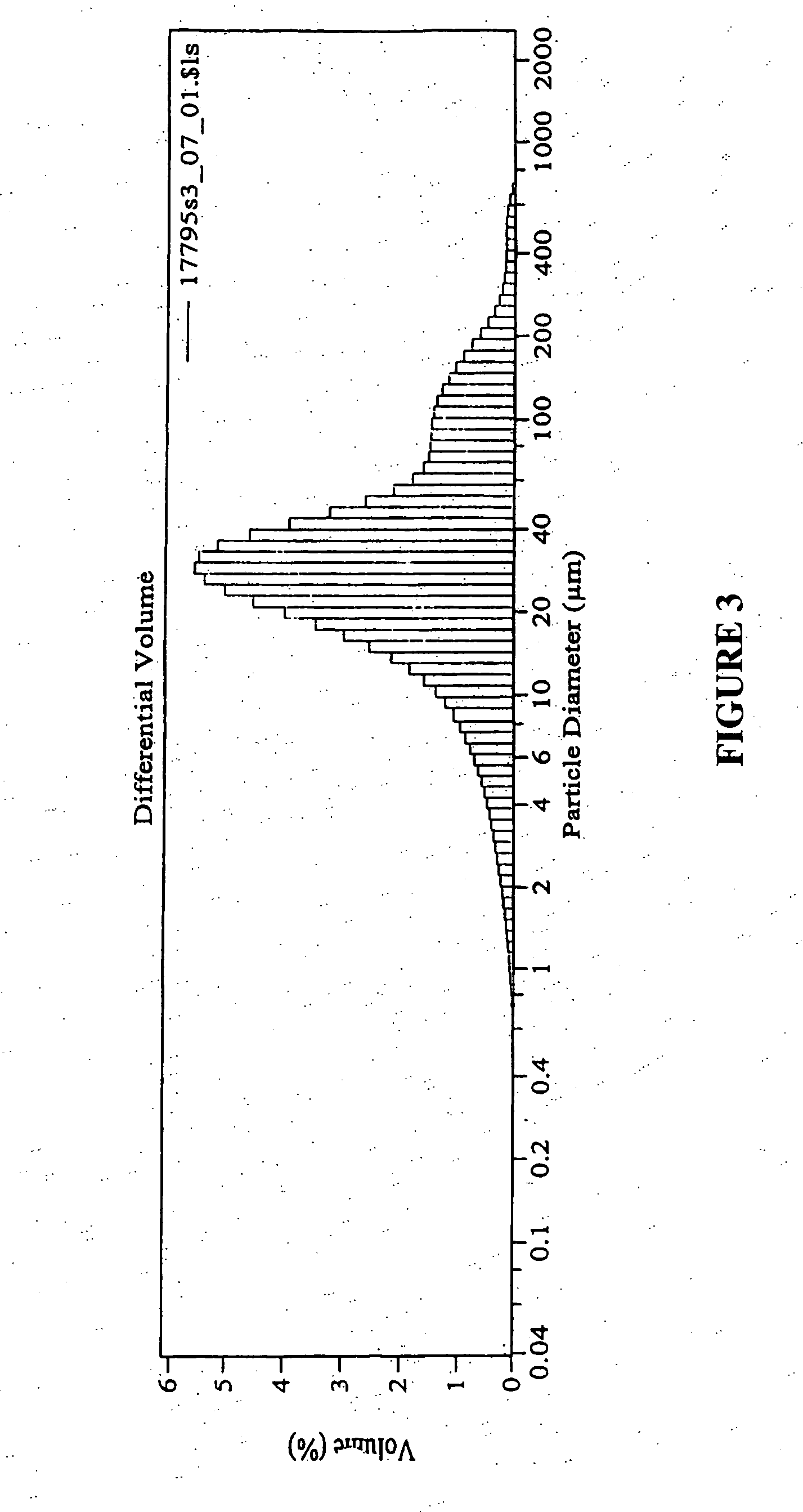Compositions and methods for oxalate reduction
a technology of oxalate and compositions, applied in the field of compositions and methods for reducing oxalate, can solve the problems of difficult formulation difficult to meet the requirements of low oxalate diets, and no oxalate can be degraded in the stomach, so as to reduce cross-linkages, maintain enzymatic activity, and reduce oxala
- Summary
- Abstract
- Description
- Claims
- Application Information
AI Technical Summary
Benefits of technology
Problems solved by technology
Method used
Image
Examples
example 1
Preparation of OxDc Alginate Microparticles and Influence of Various Process Parameters on the Stability
[0142] This example illustrates the preparation and stability of OxDc alginate microparticles and, furthermore, illustrates the influence of various process parameters on the stability of OxDc embedded in the microparticles.
Preparation of OxDc Alginate Microparticles
Microparticles I—Emulsification 1:
[0143] 11 ml of the mixture of alginate (1.8%, w / v) and OxDc (10:1, v / v; OxDc, 20 mg / ml, in 10 mM TrisHCl, pH 3.9) in 50 mM citrate buffer, pH 3.9, were mixed with 20 ml mineral oil containing 0.5% triton x-100 by magnetic stirring at 600 rpm for 10 min to reach stable emulsion state, then 4 ml CaCl2 mineral oil emulsion (2 ml 0.2 M CaCl2+2 ml mineral oil) was added and continued to stir for 30 min. 8 ml chitosan mineral oil emulsion (4 ml 0.8% chitosan and 4 ml mineral oil) was then added and stirred for another 30 min. Microparticles were collected by centrifugation. In the foll...
example 2
Preparation of OxDc Nanoparticles and Coating Thereof
[0152] This example illustrates the preparation of OxDc-containing nanoparticles and various coatings thereof.
OxDc Chitosan / tripolyphosphate Nanoparticles:
[0153] 40 ml 0. 15% (w / v) of tripolyphosphate (TPP) containing 0.5 mg / ml OxDC, pH 8.1 (adjusted by HCl before adding OxDC) was dropped into 120 ml 0.18% (w / v) chitosan in 0.13% (w / v) acetic acid, pH 3.92. Nanoparticles were collected by centrifugation and washed with water twice. This process produced about 4 ml of nanoparticles suspension.
OxDc Chitosan / TPP Nanoparticles Coated with Alginate:
[0154] 0.8 ml of the nanoparticle suspension was diluted in 10 ml water under stirring, and then 5 ml of 1.2% alginate solution (in 25 mM TrisHCl buffer, pH 8.6) was added by dropping. The mixture was kept under stirring for 5 min. The size of the coated nanoparticles increased to 2-400 μm, with the majority around 30 μm (see FIG. 3), because of aggregation of nanoparticles and crossl...
example 3
Experiments for In Vitro Testing of Removing Oxalate from Food Under Simulated Stomach Condition
[0165] In vitro testing of reduced glutaraldehyde cross-linked alginate coated OxDc chitosan / TPP microparticles
[0166] 10, 20 and 40 g of spinach was mixed with 12 ml of simulated stomach juice (gastric fluid) (84 mM HCl with 3.2 mg / ml pepsin), respectively. Then water was added to make the final volumes of 40, 80 and 160 ml, respectively. After homogenizing the spinach, simulated gastric fluid and water, reduced glutaraldehyde cross-linked alginate coated OxDc chitosan / TPP microparticles were added to degrade the oxalate released from the spinach. The (dosage) ratio of spinach / microparticle is 200 (200 g of spinach mixed with 1 g of microparticles) for all three conditions. Spinach was selected for this experiment, because it contains high amount of oxalate (about 200 mM of oxalate in the frozen spinach leaf).
Results and Discussion:
[0167] The amount of soluble oxalate is significantl...
PUM
| Property | Measurement | Unit |
|---|---|---|
| Temperature | aaaaa | aaaaa |
| Fraction | aaaaa | aaaaa |
| Fraction | aaaaa | aaaaa |
Abstract
Description
Claims
Application Information
 Login to View More
Login to View More - R&D
- Intellectual Property
- Life Sciences
- Materials
- Tech Scout
- Unparalleled Data Quality
- Higher Quality Content
- 60% Fewer Hallucinations
Browse by: Latest US Patents, China's latest patents, Technical Efficacy Thesaurus, Application Domain, Technology Topic, Popular Technical Reports.
© 2025 PatSnap. All rights reserved.Legal|Privacy policy|Modern Slavery Act Transparency Statement|Sitemap|About US| Contact US: help@patsnap.com



